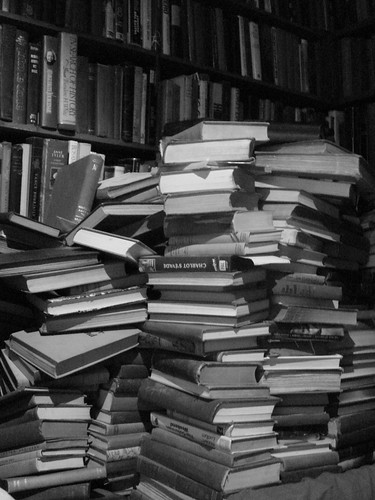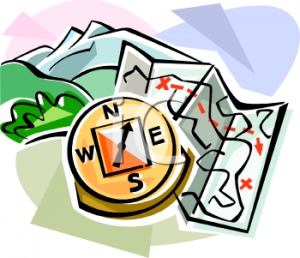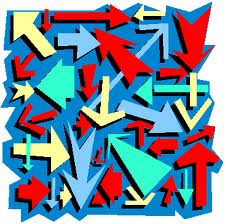 Recently I’ve been sampling some commercially-focused writing education. While high school and college classes presented what I consider a sort of forensic, after-the-fact approach to literary analysis, how-to-write books tend to focus on how to generate a prizewinning or commercially successful novel or screenplay.
Recently I’ve been sampling some commercially-focused writing education. While high school and college classes presented what I consider a sort of forensic, after-the-fact approach to literary analysis, how-to-write books tend to focus on how to generate a prizewinning or commercially successful novel or screenplay.
After reading dozens of how-to books and listening to many hours of lecture and seminars since I started writing my current novel, I thought I’d share some of my take-aways.
1) Some books teach an overtly formulaic approach, and are focused on simply getting something written.
I read a Dummies guide to novel writing. It laid out a formula, break your story into 1/4 1st act, 1/2 2nd act, 1/4 3rd act. It seemed to be mostly focused on solving the problems of writers block, and offered a ‘fractal’ approach, where you write summary sentences for each act, expand those to paragraphs, expand each sentence in the paragraphs into a paragraph, and so on until you have a story. It was very focused on if you just keep turning the crank you’ll get a novel out.
The Dummies book also made reference to another book that detailed minute mechanics of each scene and each line in the scene. I then read that book and was practically scared off of writing. This book (Swain’s Techniques of the Selling Writer), a classic, out of print but lauded title, told me that I have to have to painstakingly compose every sentence of either a motivation or a reaction. I felt like the only way to have a great book was to take a tiny brush and hand polish every word of every scene. I’m sure I do need to do that at some point, but I tried a hand at thinking that way, and I couldn’t move through my book. I decided that was an editing task and that I’d have to develop that skill in time, and I moved on to reading other how-to books.
2) Some books try to psych you up to deal with the relative impossibility of getting published.
The majority of the books I read, on novel writing at least, offered a cautiously optimistic take on the industry, and essentially gave out the same advice: Keep trying. This becomes a tautology of sorts, because if you never stop submitting you technically still have a chance of making it, whereas if you give up you will have of course failed.
This whole theory of publishing – “maybe I’ll get an agent or maybe I’ll get signed” – is outdated, because today there’s absolutely no barriers to getting your book in ePublishing. But having numerous friends and relatives in the music industry, this is an old, well known problem. Sure, there’s no barriers to cutting an album either, and in fact having a perfect, shining album produced entirely on your own money is practically prerequisite to trying to get signed as a musical act. In the same way, it’s expected that you write a pretty finished product these days in your attempts to submit and get agented or published, since your competition is doing just that.
But now you have the issue of, well, why are you waiting to get signed? Why not just put your stuff out there and see what happens? And since the record label (or publisher) wasn’t likely to sink their marketing budget on you anyway, they were going to see if you struck a chord with the public and only then cautiously support you, why not take it on yourself to promote?
Ironically, (I think it’s irony), since books take years to get published, not one of the writing books I read, even recent ones, really addressed the “maybe you should just e-publish” issue with more than a passing thought of the traditional variety, that self-publishing is sort of dirty and might tarnish you. I suppose it’s like trying to write “‘The History of the Revolution” in the middle; there’s just nothing that can be really said until the dust clears and we know who’s in charge. (Hint: Amazon and Apple).
3) Some books, seminars, and lectures offer detailed plot beats.
A good number of the lectures I listened to, which admittedly were more geared towards screenwriting but included numerous writing craft classes as well, focused on story beats. The 51 good beats for a thriller. The 189 beats of a RomCom. The 5000 beats of a master tearjerker.I exaggerate, but seriously there seems to be a very well tread path in commercial fiction and stories to hitting the key beats, and this category of advice resonated the best with my own style.
As any experienced artist knows, form is indeed liberating, and the emphasis is that while it may seem “formulaic” to include the various beats, it is also formulaic to have 4 beats in a song, formulaic to use well known instruments, formulaic to use a language that people speak, and formulaic to use Do-Re-Mi as the notes in a scale. Really, the audience (except for art seekers purposely looking for experiences out of the mainstream) is expecting to be entertained, and may not be investing more than a casual amount of attention on your artistic work. Thus making a work accessible in the standard ways but doing a fine job of it, will be rewarded. Similarly, taking a well known story form and just adding a unique twist on aspects of it, subverting expectations in an interesting and novel way, can pay off because it is built upon, again, a well known story.
4) Discovery vs. Outline writing
This is an area where it appears that the writing universe agrees to disagree.
I sort of think of it this way. There are people who are great live storytellers. Great ad-libbers. Great comedians. They can tell a joke, they can thrill you with anecdotes at a party. I have a dry sense of humor and I can occasionally be funny, but often my humor can fall flatter than I had wanted. I have a brother who can tell excellent if occasionally long winded stories, but you would see him being more effective than I around a campfire.
However, there are those people who think of the great retort later that day. “Ooh, I know what I should have said to him!”. Well, the good thing about those people is that they can be great writers. They can write that down, and the next great retort and the next, and now they’ve got some punchy, incisive dialog.
I can sit down, my mind swimming with thoughts, and write them down, and keep writing, and after some days and months I have more goodies than I know what to do with. I cull the best, separate the rest into a future bucket, and have goodies for later chapters or other books.
The same issue occurs impacts the approach to writing. There are discovery writers, who sit down, write the book, and then edit it. Period. Stephen King is a good example of this style and explains some of it in his book on writing. Some of the more genre writers, such as SciFi and fantasy, create vast universes and need to painstakingly document the magic systems or physics as well as the geography of the worlds they build. Naturally, they are sometimes just as painstaking in their plotting.
I myself found that, coming from a tech writing background, I outlined a lot. But I also found that when I go to write a chapter, no matter how outlined, the characters lead me wherever they do for the scene. I think I’m a hybrid outliner/discovery writer, but I’m probably way more outline than discovery.
5) Plotting vs. Character
The discussion of outline vs. discovery also impacts this theme, which I encountered in a lot of books. There’s this tension between hitting the plot points and keeping them from being forced. Would the character naturally do this to achieve their burning goals and desires? Or are they just stopping by the bank so they can get tangled in the bank robbery because it moves the plot along?
I saw a lot of discussion of this without a lot of good advice on how to solve this dilemma. The best I got was that plot should flow from character, and what the characters would do. But if you sit and ask what those characters should do, they might do the darndest things – and depending on how burning a desire you give them, and how sharp and defined their flaws, they might give you a great plot.
It seems to come down to some oft-repeated basics: Give them a burning desire; give them understandable flaws; put the characters in conflict.
But will this get them to the bank to be a victim of the bank heist that is critical to the unfolding of the plot? I just don’t know. And again, I will probably have to study more books to see if any of them give me some better tools than “don’t” to achieve this effect.
6) Don’t be derivative
Another oft-given piece of advice, easier said than done, is that you shouldn’t repeat others’ stories. Advice in this area ranged from what should be obvious: “don’t plagiarize”, to entreaty, “please don’t make me read your obviously derivative story”. The common areas of offense, which presumably came from the how-to authors’ personal experience in reading slush, were in characterization and plotting. Several times I was told not to write about a whore with a heart of gold or a hard-bitten cop. So I’m going to write about a cop with a heart of gold and a hard-bitten whore and see where it gets me.
Plotting, while not being outright plagiarism or theft, can be a serious issue. If you’re not familiar with the stories and literature of your genre, you could use the exact same twist – either subliminally transmitted to you by the culture, or thought of completely independently. Either way, you come across clumsy and unprofessional if you unknowingly lift someone else’s solution. Especially, especially if they don’t know about it.
Was it Picasso who said good artists borrow, great artists steal? Well poor artists unwittingly copy.
Should you even read how-to-write books?
That’s the question. When I started writing my current novel, I started perusing (in the thorough sense) various books on writing, but I took them with a grain of salt. I had been given the advice – probably from a how to book – that reading them was a fruitless exercise. That the techniques they taught were often different than the way I worked, and they were mostly applicable to that specific author’s personal work style. Also, a lot of advice was simply an attempt to help aspiring authors finish something. In a similar vein, many of the books simply said “you should read a lot” and in many ways implied that style and judgement would arise from reading sufficiently. Other books gave the simple answer “write a lot” and the books were divided as to whether people should have their works critiqued.
Here’s my thoughts on the matter:
1) If you’re having trouble finishing your book, some of the books with a motivational slant may get you past the finish line.
2) If the drivel you write feels like total crap compared to the lofty prose you read, some of the books might help you find out what’s wrong with your sentences.
3) If you haven’t read enough at all, or read enough in your genre, or if like me all your in-genre “reading” was actually going to the movies which are universally regarded as not as good as the book, then you shouldn’t read a how-to book. You should read novels in your genre.
4) If you’ve barely written but you’ve read enough, then you should likewise skip the how-to books. Like language, you probably have the vocabulary – not just words but the scenes, transitions, motivations, and plot – and you should just start writing. Chances are, if you are quite well read, and you have some story ideas, that you will be able to write well.
Writing is communication. Your style of communication is unique to you. Experiencing and relating stories is inherent in the human psyche. We all live stories. So if you’ve experienced, if you’ve listened, then you can similarly tell a story. And if you can put sentences together that make grammatical sense, you can write a book.
5) Probably the worst thing that can happen to an artist is criticism. Criticism stops art. Invalidation and unskilled or inapplicable “constructive criticism” can kill or worse, subvert one’s creativity.
One huge risk is that external criticism gets internalized.
“Oh we don’t need any more vampire stories.” “You can’t use -ly words”. Perhaps these words of advice are relatively true for today, but there are countless other opinions and advice that have no bearing but when conveyed as rules create a cage that can stifle creativity.
My advice on reading how-to books is either:
1) Stay away from them!
or
2) Read all of them!
That way, you’ll be able to see which advice is consistent across books, which advice is the oddball opinion of one writer, and which jealous “advice” shouldn’t be foisted upon writers at all.
In conclusion, here’s a summary of the most consistent advice I gleaned from the myriad of how-to books:
- Read a lot
- Write a lot
If you’ve read enough, you don’t need to study how to write.
 This is the second of three blogs related to setting goals. Clancy kicked off the series with her excellent post Road Maps Help You Get There.
This is the second of three blogs related to setting goals. Clancy kicked off the series with her excellent post Road Maps Help You Get There.
 Recently I’ve been sampling some commercially-focused writing education. While high school and college classes presented what I consider a sort of forensic, after-the-fact approach to literary analysis, how-to-write books tend to focus on how to generate a prizewinning or commercially successful novel or screenplay.
Recently I’ve been sampling some commercially-focused writing education. While high school and college classes presented what I consider a sort of forensic, after-the-fact approach to literary analysis, how-to-write books tend to focus on how to generate a prizewinning or commercially successful novel or screenplay.

